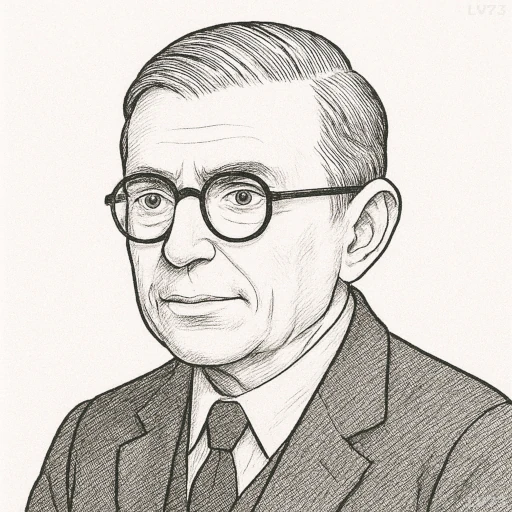“No finite point has meaning without an infinite reference point.”

- June 21, 1905 – April 15, 1980
- Born in France
- Philosopher, novelist, playwright
table of contents
Quote
“No finite point has meaning without an infinite reference point.”
Explanation
In this statement, Sartre suggests that human experiences and actions, as finite and limited as they are, derive meaning only through a larger context or reference—often described as infinity or an overarching purpose. The “infinite reference point” could be interpreted as an ultimate standard or universal truth that provides guidance or meaning to our individual lives. Without such a point, the smaller, more specific moments in life lack the depth or significance that give them purpose. Sartre’s existentialism often grapples with the absence of inherent meaning in the world, asserting that humans must create their own significance, but here he acknowledges that meaning often feels relative—it requires something larger to measure against.
The quote also reflects a critique of relativism, where individual actions, values, or truths are seen as isolated or subjective without a unifying principle. Sartre’s idea suggests that without a reference to something greater (whether that be a moral standard, philosophical system, or cosmic purpose), our choices and experiences can feel insignificant or meaningless. This aligns with his existentialist view that, although we are free to create our own meaning, we may find ourselves struggling with existential uncertainty without some larger context to frame our existence.
In the modern world, this idea can be applied to discussions around purpose and morality. In a society where many people feel disconnected from traditional systems of meaning, such as religion or shared societal goals, the question of what provides an infinite reference point becomes increasingly relevant. Without a sense of something greater than individual desires or cultural norms, people may struggle to find lasting meaning in their lives. Sartre’s philosophy challenges us to reflect on the importance of context, whether it’s through a personal belief system, a larger social movement, or a philosophical framework, in order to make sense of our individual experiences.
Would you like to share your impressions or related stories about this quote in the comments section?


